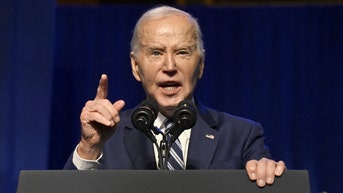Improv at Schurz High School brings neuro-divergent teens out of their shell
/cdn.vox-cdn.com/uploads/chorus_asset/file/25043719/merlin_116773956.jpg)
The girl with the ponytail is 14 years old, but she towers above several of the older students in the class.
Her words trickle out in a whisper or a mumble, and she looks like she isn’t quite sure what to do with her hands.
“I was very nervous when I first got here, but I learned that everyone was a friend, that I wouldn’t be judged here, that I could just be myself,” says the girl, Jessella Santos.
Anyone would be nervous. Jessella, a freshman, is staying late at Schurz High School on the Northwest Side to take part in an improv club, where students are handed a situation — often something humorous — and, without a script, they must act it out.
“Big and bold” is always better, says their coach, Kevin McKinstry.
The kids probably aren’t destined for a career at The Second City; that’s not the point.
The students — eight on this particular evening — are dealing with a range of issues, from autism to attention deficit disorder, McKinstry says.
“Or something like that that makes it hard for them to understand social cues, makes it hard for them to be able to understand what is appropriate to say in certain situations,” McKinstry says.
He recruits kids after talking to the school’s counselors and social workers.
“I say, ‘Who is having difficulty making friends, but isn’t being super disruptive about it?’ ” McKinstry says.
Kevin McKinstry (left), an improv-trained special education teacher, advises Jonah Barrera and Brandon Sanic on their scene together at Carl Schurz High School.
Tyler Pasciak LaRiviere/Sun-Times
McKinstry is a special education teacher at Schurz, with improv training at Second City and ComedySportz — among other places. He was also painfully shy as a kid and as a young adult.
“I didn’t really like talking to anyone outside of my friend group. I didn’t volunteer a lot of responses during class time,” he says. “My mom actually had to train me to talk to waitresses [so that I could] order for myself.”
At first glance, improv may seem like an odd way to help socially awkward kids better communicate in the real world. On this particular evening, they are tossing invisible red balls at each other, pretending they’re wizards or characters from “Star Wars.”
But the idea is to keep the conversation going, whatever that conversation may be — particularly for kids who are exceptionally shy.
“There was one kid I had about two or three years ago who it took about four months before she was able to go up and do a full-on scene. … I had everyone turn around and face the other way, so she could be up there,” McKinstry says.
The club is in its seventh year and dozens of kids have joined in that time, McKinstry says.
There’s science behind what McKinstry does.
Clay Drinko — middle school teacher, author and regular contributor to Psychology Today — says studies increasingly show the benefits of improv for mental health.
“In general, it seems to decrease social anxiety, decrease stress,” Drinko says. “Studies show it promotes confidence.”
He adds: “One of the biggest factors is that there are no mistakes and that any contribution made in an improv scene is going to be accepted and integrated into the scene which, neuro-divergent or not, is often really liberating.”
Almost nothing is off limits in McKinstry’s club, except the sorts of things that would be discouraged in any school setting — like racist or anti-gay themes.
The club, devoted as it is to kids with a range of needs, is one of just a few in the district. McKinstry helped set up a spinoff club led by kids who were in his Schurz club and then graduated.

John Colón (right) gets physical while performing with Jay Ruiz during improv practice at Carl Schurz High School. Both are 17.
Tyler Pasciak LaRiviere/Sun-Times
Ian Vasicek is a recent Schurz graduate and is part of a handful of former students who volunteer twice a week at Suder Montessori Magnet School, just a little north of the United Center.
Vasicek is autistic, has anxiety and ADHD. He was the kind of kid who could talk for 45 minutes without interruption about the Star Wars universe — and not realize the person in front of him wasn’t nearly as interested in the subject.
“My friend Aeron said that when I was talking it sounded like a single breath,” Vasicek said.
He struggled with classwork, but still managed to graduate in four years.
“I fit in immediately,” he said of joining McKinstry’s improv club. “Because I didn’t have a lot of close friends, I was used to playing make-believe on my own.”
And now Vasicek is helping kids a lot like he was in school.
“I can tell a lot of them are on a spectrum. A lot of them have either ADHD or autism,” Vasicek said. “Some of them start out shy, but then we help them come out of their shell.”
Recently, the school librarian pulled Vasicek aside. Her son is in the club. The librarian told Vasicek he and his friends are having a “great impact on the kids.”
“It felt good to hear,” Vasicek said.
https://chicago.suntimes.com/education/2023/10/30/23933839/improv-schurz-high-school-neuro-divergent-teens-autism-adhd Improv at Schurz High School brings neuro-divergent teens out of their shell



